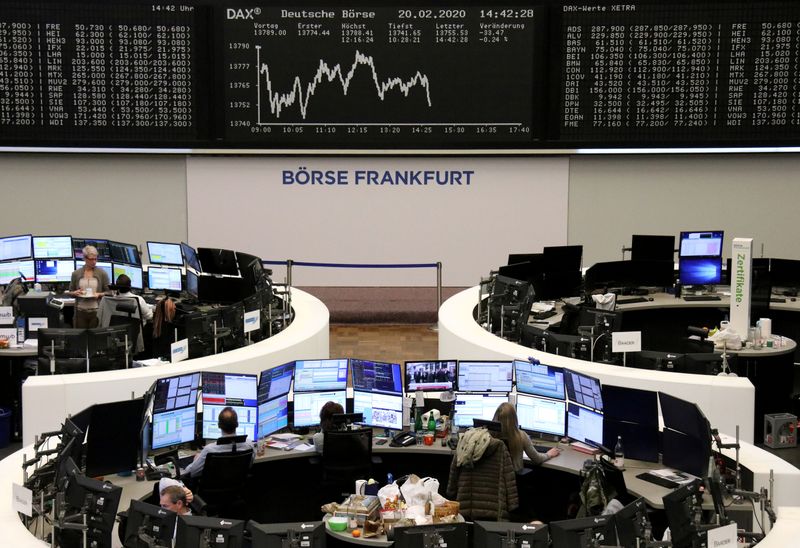By Tom Wilson
LONDON (Reuters) - The Japanese yen regained its footing on Friday after a bruising week, as the spread of coronavirus cases knocked down stocks and boosted demand for traditional safety plays from bonds to gold.
China reported more cases of the disease, with finance leaders from the Group of 20 major economies meeting in Saudi Arabia over the weekend set to discuss risks to the global economy stemming from the outbreak.
Though markets have largely shrugged off fears of long-term economic damage from the virus, a steady drip of new cases in countries beyond China - South Korea on Friday recording over 50 new cases - has kept worries gnawing away.
Among the winners on Friday were the yen, gold and government bonds.
The yen gained as much as 0.5% against the dollar
Other shelters also gained.
"It's risk-off. Bonds are being bought again and hedges are being put into play at the moment," said Olivier Marciot, an investment manager at Unigestion.
Gold scaled its highest in seven years and was last up 0.8% at $1,634.49
Yields on 30-year U.S. Treasuries (US30YT=RR) fell below the psychologically important 2% level to the lowest since September 2019, while yields on 10-year notes (US10YT=RR) fell to similar lows.
Ten-year German government bond yields fell to a four-month low (DE10YT=RR), with the entire yield curve on the cusp of turning negative. The entire Dutch yield also returned to negative territory.
The moves came at the expense of stocks. Europe's broad Euro STOXX 600 (STOXX) fell nearly half a percent at one stage and MSCI world equity index (MIWD00000PUS) was 0.2% lower and set for its worst week in four.
Wall Street futures gauges (ESc1) slipped 0.25%.
"U.S. and EU equity markets have been sold across the board with core global yields benefiting from safe-haven flows," said Rodrigo Catril, a senior FX strategist at NAB.
Not helping the nerves were signs that economies in Asia were feeling the fallout from the epidemic.
MSCI's broadest index of Asia-Pacific shares outside Japan (MIAPJ0000PUS) slipped 1%.
In Japan, factory activity suffered its steepest contraction in seven years in the clearest evidence yet of the coronavirus' damaging effects.
In a vignette of the impact in Asia, the International Air Transport Association estimated losses for the region's airlines alone could near $28 billion this year - with most of that in China.
Still, European surveys painted a brighter economic picture, suggesting fallout further from Asia may be limited.
Business activity in the euro zone accelerated more than expected this month, with France's service sector rebounding and German private sector growth also holding steady.
British businesses also grew at a solid clip in February, with factories posting the quickest rise in output for 10 months.
PATCHED-UP YEN?
The flows into bonds have been a boon to the U.S. dollar, boosting it to multi-month peaks against a raft of competitors this week.
Against a basket of currencies, the dollar was last down 0.1% at 99.722, retreating from 33-month highs touched a day earlier.
As the dollar has gained against the yen, some have called into question its status as a haven in times of economic and geopolitical strife.
Yet some traders said on Friday reports of the yen's demise were overdone.
"It was too soon to write off the yen as a safe haven," said Mayank Mishra, an FX strategist at Standard Chartered (LON:STAN) in Singapore.
"I think the yen is reasserting its status as a safe haven."

For Reuters Live Markets blog on European and UK stock markets, please click on: [LIVE/]